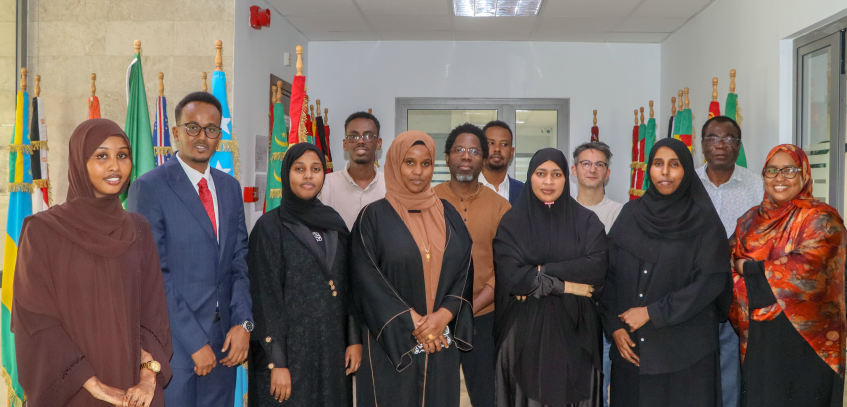A major milestone has been reached in Somalia’s journey toward more robust economic governance, as the National Bureau of Statistics (NBS) completed a five-day capacity-building mission focused on the use of EUROTRACE—a modular software suite developed by Eurostat for the compilation and dissemination of international trade statistics.
Held in Tunis from April 21 to 25 under the Pan-African Statistics Programme II (PAS II), and funded by the European Union, this technical assistance mission marks the first direct engagement of Somalia’s NBS with the EUROTRACE system.
Building capacity through practical training
Participants from Somalia’s NBS, Customs Administration, and Central Bank received practical training in EUROTRACE’s core modules. The Access version of EUROTRACE was installed and configured, and a national training domain was created using Somali customs data.
Developed by Eurostat and now used in over 100 countries, EUROTRACE facilitates the efficient management of international merchandise trade statistics (IMTS). The tool’s modular design allows for flexible deployment and seamless integration with other data sources, enhancing data quality and utility. Its real-time error validation and customisable visualisation features are especially crucial in settings where electronic records coexist with paper-based systems.
Supporting reliable data for informed decision-making
Trade statistics are essential for policy-making, economic planning, and assessing trade dynamics within regional and global markets. For Somalia, this intervention provides a concrete foundation for producing more reliable and harmonised trade data, aligned with international standards. As a senior NBS representative stated, “The training has equipped our team with critical skills and foundational knowledge to begin using EUROTRACE effectively. It is a major milestone in our efforts to build reliable and harmonised trade statistics.”
Led by Mr. Roméo Adjovi, Senior International Expert, the mission addressed practical challenges such as data integration from Customs and validation mechanisms. This initiative is part of PAS II’s broader objective to enhance the statistical capacities of African nations and to promote evidence-based decision-making. The outcomes of the mission support the ambitions of the African Continental Free Trade Area (AfCFTA), underlining the strategic importance of trade data in continental integration efforts.









